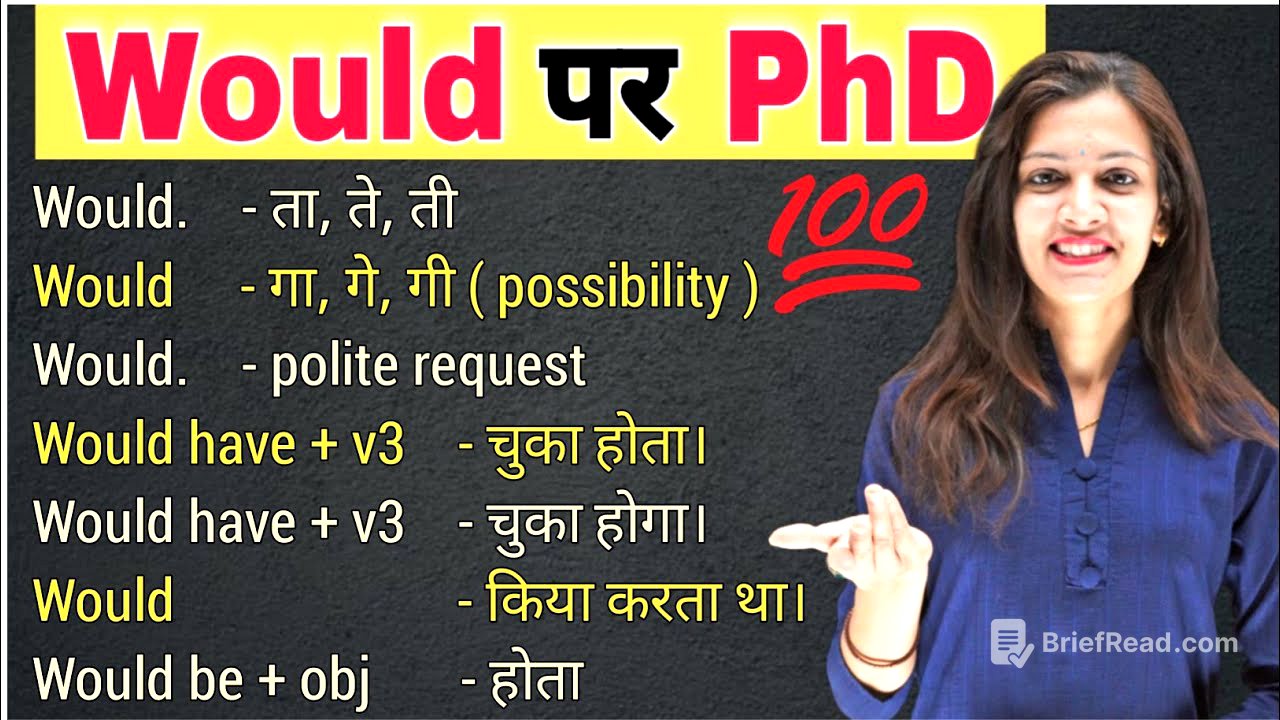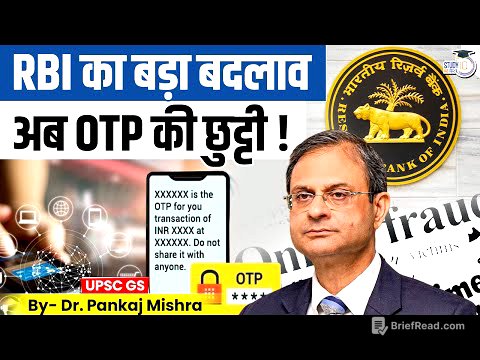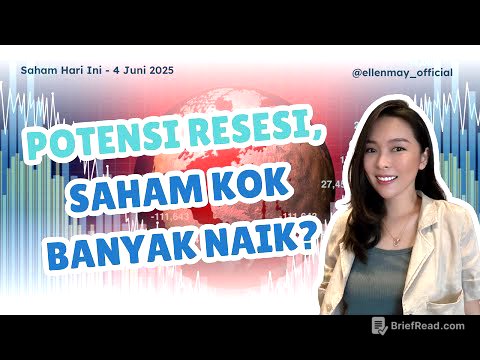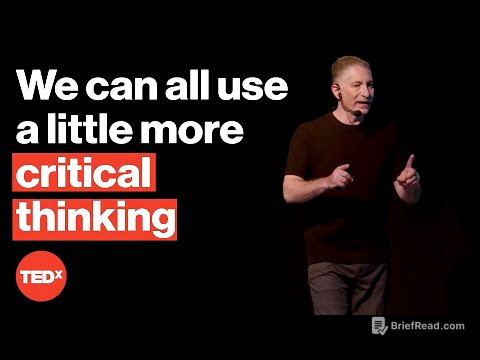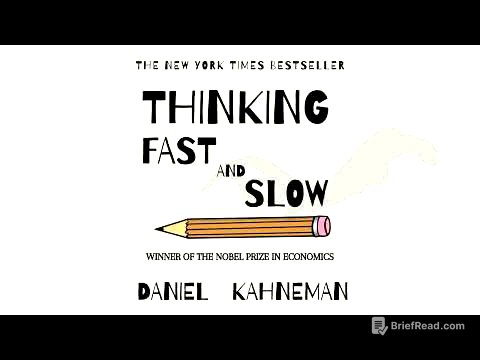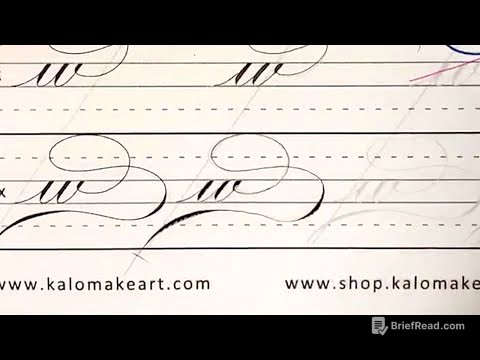TLDR;
This video explains the various uses of the word "would" in English, providing examples and context for each use. It covers polite requests, future possibilities, wishes, past habits, and more. The video aims to clarify the different meanings and applications of "would" to help viewers construct accurate and meaningful sentences.
- Polite requests using "would you please"
- Expressing future possibilities and wishes
- Describing past habits and actions
- Using "would have" to talk about past events that didn't happen
- Using "would be" to describe ongoing actions in the past
Introduction to the Uses of "Would" [0:00]
The video introduces the extensive applications of the word "would" in English, highlighting its importance in constructing various types of sentences. The lesson aims to simplify the understanding of "would" so that viewers can easily incorporate it into their daily conversations. The instructor encourages viewers to stay tuned to the end of the video to fully grasp the different uses of "would".
"Would Have" - Expressing Past Actions That Didn't Happen [0:50]
This section explains the use of "would have" to describe actions that were intended or possible in the past but did not occur. The structure involves using "would have" followed by the third form of the verb. Examples include "I would have gone there, but I was busy" and "I would have informed you, but I didn't have your contact number." These sentences indicate a missed opportunity or an unfulfilled intention due to certain circumstances.
"Would" - Expressing Future Possibilities [3:11]
The instructor explains that "would" is used to express future possibilities or actions that are not certain to happen. For example, "She would do it tomorrow" indicates a possibility rather than a definite plan. The context of the conversation helps determine whether "would" is expressing a future possibility or another meaning.
"Would You Please" - Making Polite Requests [4:38]
This part of the video focuses on using "would" to make polite requests. By adding "please" to a sentence with "would," you can politely ask someone to do something. Examples include "Would you please send a glass of water for me?" and "Would you please speak slowly?" This construction is useful for getting someone to do something in a courteous manner.
"Would Like To" - Expressing Wishes [5:58]
The video explains the usage of "would like to" to express a wish or desire to do something. This is followed by the first form of the verb. For example, "I would like to learn English" and "She would like to come here" indicate a person's desire or intention to perform a certain action.
"Would Have" + Third Form - Describing Completed Actions in the Past [7:18]
This section explains how "would have" combined with the third form of a verb is used to describe actions that would have been completed in the past under certain conditions. Examples include "He would have gone there" and "She would have cooked food if she had time." These sentences imply that an action could have been completed if the circumstances had been different.
"Would" as the Past Form of "Will" [10:23]
The instructor clarifies that "would" is the past form of "will." This is particularly relevant when discussing future events from a past perspective. For instance, "She said that she would come" indicates a future action (coming) that was discussed in the past.
"Would Have" - Expressing Completed Actions Before a Certain Time in the Past [11:01]
This segment explains that "would have" is used to indicate that an action must have been completed before a certain time in the past. For example, "Rohan must have written it" suggests that the act of writing was completed sometime before the present moment. This usage emphasizes the completion of an action in the past, not in the future.
"Would" for Past Habits [12:51]
The video explains that "would" can be used to describe past habits or repeated actions. Similar to "used to," "would" followed by the first form of the verb indicates something that was done regularly in the past. For example, "When I was in school, I would play with my friends" describes a habitual action during a specific period in the past.
"Would Be" - Describing Ongoing Actions in the Past [15:18]
This section explains the use of "would be" to describe actions that were ongoing or would be happening in the past. For example, "If you had told me, I would be here" indicates a state of being or an action in progress in the past, contingent on a certain condition.
"Would" in Past Continuous Tense [17:19]
The instructor explains that "would be" can be used similarly to the present continuous tense but in the past. For example, if someone asks what Rohan is doing, you might say, "Rohan would be studying," indicating what he is likely doing at that moment. This usage is for present assumptions, not future actions.
Conclusion and Encouragement [19:59]
The video concludes by summarizing the various uses of "would" discussed throughout the lesson. Viewers are encouraged to practice making sentences using these structures and to share their examples in the comment section. The instructor expresses hope that the video was helpful and invites viewers to like the video and look forward to the next class.
